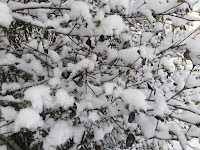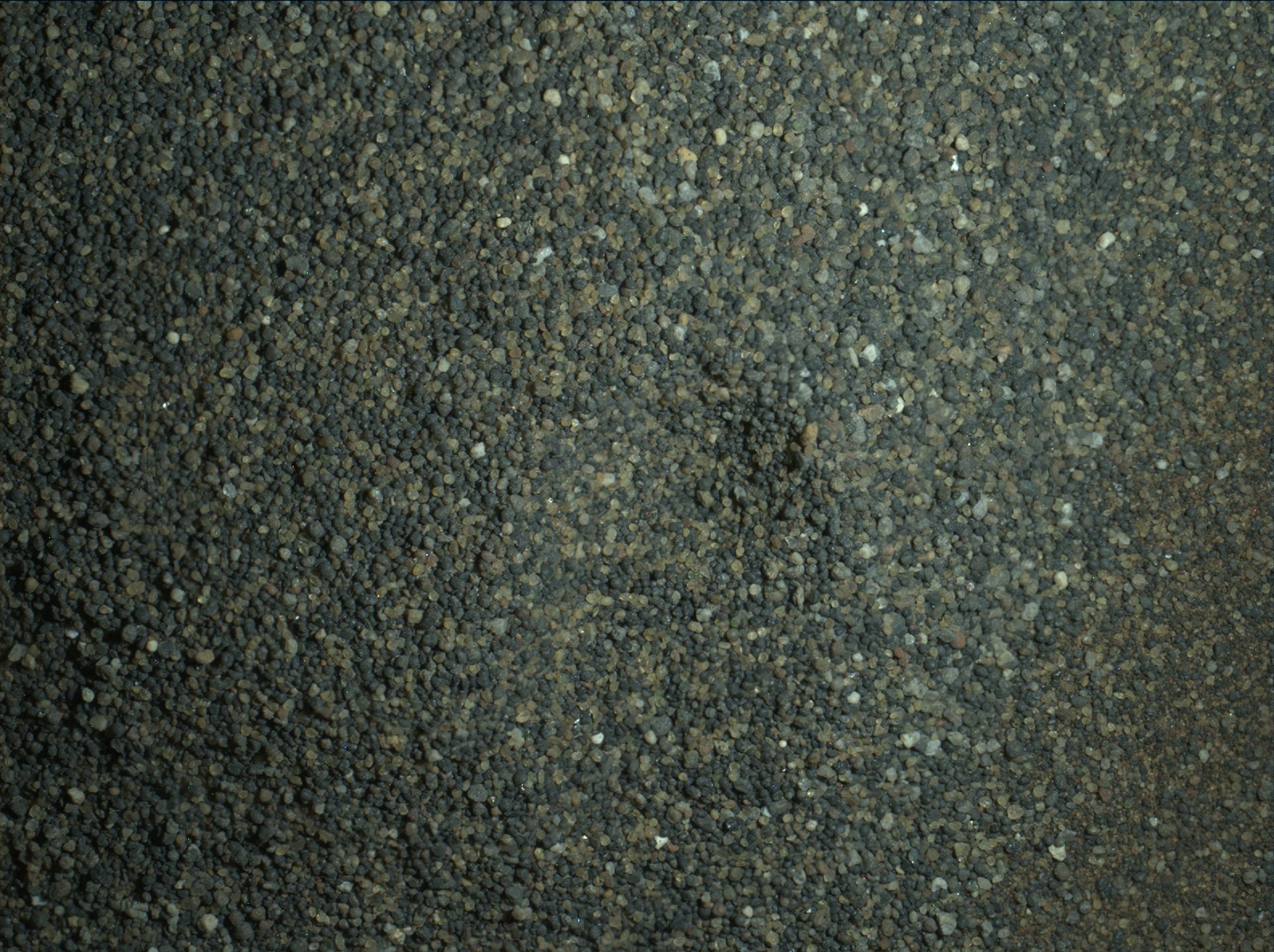Winter Paradise... Some photos from around our yard, none of them more than 50' from our house. Click any thumbnail to embiggen:
Sunday, January 24, 2016
What's that?
What's that? Why it's a close-up image of some Martian sand, from the dark dunes Curiosity is currently exploring.
Staring at this raises all sorts of questions for me, mainly because that sand looks so very much like sand I might find here on Earth. Here, we understand a lot about how such sands form. All of the processes I know of involve water: the freezing ices of winter (expanding in cracks to break rocks up), the erosion of particles in flowing water, or the pounding waters of the sea (which break up rocks by pounding them). How did this sand happen on Mars? Is there some mechanism that involves only atmospheric gases that created them? Or is this good evidence of the presence of water?
Staring at this raises all sorts of questions for me, mainly because that sand looks so very much like sand I might find here on Earth. Here, we understand a lot about how such sands form. All of the processes I know of involve water: the freezing ices of winter (expanding in cracks to break rocks up), the erosion of particles in flowing water, or the pounding waters of the sea (which break up rocks by pounding them). How did this sand happen on Mars? Is there some mechanism that involves only atmospheric gases that created them? Or is this good evidence of the presence of water?
Star cluster R136...
Star cluster R136... Via APOD, of course. Click thumbnail at right to embiggen, or get the glorious full resolution image...
Ed Yourdon, RIP...
Ed Yourdon, RIP... For geeks of a certain age, Ed Yourdon is a name that conjures up memories of computer programming's first tentative steps toward engineering, rather than as a pure art. His book Structured Design was a milestone. It's largely forgotten now, as its essentials have been absorbed into the programming culture as well as into successor design “fads”. For me that book was revelatory ... it truly introduced me to the idea that one could usefully think about patterns in the way one wrote code.
I had the chance to meet (and talk with) Ed on two occasions, both times at conferences. Once was in the early '80s, when my then-employer sent me to a conference put on by Roger Oech; the other in the early '90s at Comdex. At that first conference, I had lunch with him, and we share some memories of the early days of microcomputing. Even then, both of us were surprised at how quickly microcomputers were ramping up – and neither of us had any clue that those days were but the beginning.
Ed's book sticks in my mind mostly for one thing it accomplished: teaching this young geek why the spaghetti code (the only kind I'd ever written to that point, with jumps sprinkled randomly throughout) was a bad idea, and how it could be better done. I still remember the conflict I felt then, between the rigor and beauty of structured programming and the need for performance optimizations. I really didn't understand, then, that the low performance microcomputers of the day would shortly be antiques, and that the cost of a few extra computer instructions would soon be zero for all practical purposes. It seems downright silly today to assert that it might be necessary to write some unstructured code to get the performance we needed, but back then it was quite a normal thing. It still happens today, but on increasingly rare occasions...
I had the chance to meet (and talk with) Ed on two occasions, both times at conferences. Once was in the early '80s, when my then-employer sent me to a conference put on by Roger Oech; the other in the early '90s at Comdex. At that first conference, I had lunch with him, and we share some memories of the early days of microcomputing. Even then, both of us were surprised at how quickly microcomputers were ramping up – and neither of us had any clue that those days were but the beginning.
Ed's book sticks in my mind mostly for one thing it accomplished: teaching this young geek why the spaghetti code (the only kind I'd ever written to that point, with jumps sprinkled randomly throughout) was a bad idea, and how it could be better done. I still remember the conflict I felt then, between the rigor and beauty of structured programming and the need for performance optimizations. I really didn't understand, then, that the low performance microcomputers of the day would shortly be antiques, and that the cost of a few extra computer instructions would soon be zero for all practical purposes. It seems downright silly today to assert that it might be necessary to write some unstructured code to get the performance we needed, but back then it was quite a normal thing. It still happens today, but on increasingly rare occasions...
Paradise ponders...
Paradise ponders... Woke up this morning to 35°F temperatures, gentle snowfall, and about 2" of new snow on the ground. When I let the dogs out for their morning constitutional, they gamboled about the back yard with sheer joy. There's something about that fluffy snow that they really like. I had to go out in the yard (with my housecoat and boots :) to retrieve them; they didn't really want to come back inside. All three of them had a nice coat of fresh snow on them that (of course!) they didn't want to get rid of until after they were back inside...





















